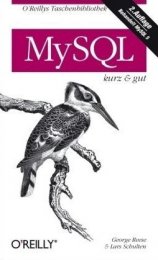Code-Beispiel
Testsuite Compiler
| Lizenz: | Erster Autor: | Letzte Bearbeitung: |
| WTFPL |  MOD MOD |  26.01.2014 26.01.2014 |
Angelehnt an meinen Code zum rekursiven Durchsuchen von Dateien, habe ich hier ein kleines Programm gebastelt, das alle FreeBASIC-Codes eines angegebenen Ordners und dessen Unterordner durch einen oder mehrere FreeBASIC-Compiler compilieren lässt. Nach Bedarf können die erstellten Programme dann noch gestartet und auch anschließend gelöscht werden.
Der Code eignet sich also vor allem für Testsuites, bei denen eine Menge Codes als Testdateien definiert sind.
#Include Once "dir.bi"
#Ifndef FALSE
#Define FALSE 0
#Define TRUE (Not FALSE)
#EndIf
Type Compiler
Declare Constructor (fbc As String, compileOptions As String, activated As Integer)
As String fbc
As String compileOptions
As Integer activated
End Type
Constructor Compiler(fbc As String, compileOptions As String, activated As Integer)
This.fbc = fbc
This.compileOptions = compileOptions
This.activated = activated
End Constructor
Declare Sub compileDirectory(fbc As String, compileOptions As String, startDir As String, attribute As Integer, runAfterCompilation As Integer = FALSE, deleteExeAfterwards As Integer = FALSE)
'#####################################################
' Configure here
'#####################################################
Dim As String compileOptions = "-g -exx"
Dim As Compiler fbc(0 To ...) = { Type<Compiler>("fbc", compileOptions, TRUE), _ 'default fbc
Type<Compiler>("""\0.91_x86\fbc.exe""", compileOptions, TRUE), _ 'current x86 build
Type<Compiler>("""\0.91_x64\fbc.exe""", compileOptions, TRUE) } 'current x64 build
Dim As String startDir = "test\"
Dim As Integer attribute = fbDirectory Or fbNormal
Dim As Integer runExe = TRUE
Dim As Integer deleteExe = TRUE
'#####################################################
'Output
Print "-------------------------------------------------------------------------------"
Print "| Starting... |"
Print "-------------------------------------------------------------------------------"
For i As Integer = 0 To UBound(fbc)
If fbc(i).activated Then
Print "Using " & fbc(i).fbc
Print String(Len(fbc(i).fbc) + Len("Using "), "-")
compileDirectory(fbc(i).fbc, fbc(i).compileOptions, startDir, attribute, runExe, deleteExe)
Print "-------------------------------------------------------------------------------"
EndIf
Next
Print "-------------------------------------------------------------------------------"
Print "| Finished! |"
Print "-------------------------------------------------------------------------------"
While Len(InKey) : Wend
Print "Press any key..."
Sleep
Sub compileDirectory(fbc As String, compileOptions As String, startDir As String, attribute As Integer, runAfterCompilation As Integer = FALSE, deleteExeAfterwards As Integer = FALSE)
Dim As String currName, temp
Dim As Integer lines, FF, attributeRet
currName = Dir(startDir & "*", attribute, @attributeRet)
While currName <> ""
Select Case attributeRet
Case fbDirectory
If currName <> "." AndAlso currName <> ".." Then
compileDirectory(fbc, compileOptions, startDir & currName & "\", attribute, runAfterCompilation, deleteExeAfterwards)
'reset dir - may cost time in huge folders but will do the trick in most cases
Dim As String tempName = Dir(startDir & "*", attribute, @attributeRet)
While tempName <> currName
tempName = Dir("", attribute, @attributeRet)
Wend
EndIf
Case Else
Dim As String fileNameWithoutExtension = Left(currName, Len(currName) - 4)
Dim As String fileExtension = Mid(currName, InStrRev(currName, "."))
Dim As String fileNameExe
#If Defined(__FB_LINUX__)
fileNameExe = fileNameWithoutExtension
#ElseIf Defined(__FB_WIN32__)
fileNameExe = fileNameWithoutExtension & ".exe"
#EndIf
If fileExtension = ".bas" Then
Print "Compiling " & startDir & currName & "..."
Dim As String temp, fbcMessages
lines = 0
FF = FreeFile
Open Pipe fbc & " " & compileOptions & " " & startDir & currName & " 2>&1" For Input As #FF
While Not Eof( FF )
Line Input #FF, temp
fbcMessages &= temp
Wend
If Len(fbcMessages) Then
Print "Compilation failed:"
Print fbcMessages
Print
EndIf
Close #FF
If runAfterCompilation AndAlso Len(fbcMessages) = 0 Then
Print "Running " & fileNameExe & ":"
Print String(Len(fileNameExe) + Len("Running ") + 1, "-")
Exec(startDir & fileNameExe, "")
Print String(Len(fileNameExe) + Len("Running ") + 1, "-")
EndIf
If deleteExeAfterwards AndAlso Len(fbcMessages) = 0 Then
Print "Deleting " & fileNameExe & "..."
Select Case Kill(startDir & fileNameExe)
Case 1
Print "Deleting failed: file does not exist: " & startDir & fileNameExe
Case 2
Print "Deleting failed: " & startDir & fileNameExe
End Select
EndIf
EndIf
End Select
currName = Dir("", attribute, @attributeRet)
Wend
End Sub
| Zusätzliche Informationen und Funktionen | |||||||
|---|---|---|---|---|---|---|---|
|
|||||||



 FreeBASIC-Nachrichten jetzt auch über Twitter erhalten. Follow us!
FreeBASIC-Nachrichten jetzt auch über Twitter erhalten. Follow us! Bearbeiten
Bearbeiten Versionen
Versionen